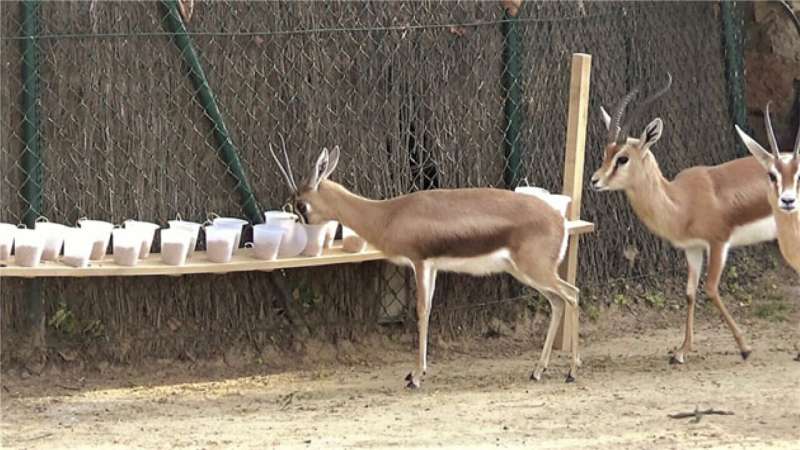April 24, 2023 report
This article has been reviewed according to Science X's editorial process and policies. Editors have highlighted the following attributes while ensuring the content's credibility:
fact-checked
peer-reviewed publication
trusted source
proofread
Fringe group hooved animals may be better problem solvers

A team of psychologists, animal behaviorists and neuroscientists affiliated with several institutions in Spain and Germany has found via experimentation that hoofed fringe group individuals may be better problem solvers than peers who are more accepted by their group. In their study, reported in the journal Proceedings of the Royal Society B, the group conducted a problem-solving experiment they conducted with multiple species of hooved animals.
Innovation is generally defined as the ability to find new solutions to old problems—humans are known for their innovation skills, as are some other animals such as apes, squirrels and New Caledonian crows. Ungulates, animals with hooved feet, are not similarly known for their innovation skills. In this new effort, the research team set out to learn more about their innovation skills and potential differences among them. To that end, they designed and carried out a simple experiment and then tested several individuals of multiple different species.
The experiment consisted of nailing small plastic see-through containers to the top of a fence, dumping in pellets preferred by a given species and then putting on a plastic cap. The researchers watched as the animals approached the treats and attempted to remove the lid to gain access. This was considered to be an easy task for all of those tested—caps could be removed with the lips or by simply knocking them around a little bit.
In all, the research team tested 111 captive animals involving 13 species. Each was filmed as they attempted to open the small cup and eat the meal inside.
The researchers found that overall, 36% of all animals involved in the study managed to successfully open a container, though they note that several of the animals did not acknowledge the containers and thus did not attempt to open them. Such participation varied widely, however—all of the camels made an attempt while just 33% of the sheep did so. They also found that overall, camels and goats were the most successful, with camels the clear winners—86% of them got their food prize.
Additionally, data showed that outliers tended to do better at solving the puzzle than more established members of a group, as did those who were found to be less afraid of new things than other members of their group. This, the researchers suggest, hints at the possibility, that outliers might be more innovative than their peers.
More information: Alvaro L. Caicoya et al, Innovation across 13 ungulate species: problem solvers are less integrated in the social group and less neophobic, Proceedings of the Royal Society B: Biological Sciences (2023). DOI: 10.1098/rspb.2022.2384
Journal information: Proceedings of the Royal Society B
© 2023 Science X Network




















